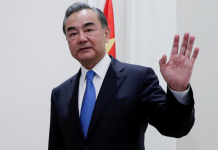A desire to capitalise on distressed situations, grow international market share and acquire new technology will drive a surge in M&A activity in the oilfield services sector during 2016, according to major new research from international law firm Pinsent Masons.
The survey of 200 senior executives across the oilfield services industry, which includes 50 private equity firms, has revealed that 86 per cent of respondents expect a surge of deal activity in the next 12 months amid unprecedented price volatility. 70 per cent said they were actively considering an acquisition within the next 12 months.
74 per cent pinpointed expansion of overseas operations as the main driving force behind deal activity, with 70 per cent expecting opportunism around distressed assets to drive deals and 60 per cent eyeing technology-driven consolidation. Corporates operating in the offshore technology and equipment segments were seen as the most attractive targets.
Commenting on the sector during the research study, the managing director of a Middle Eastern-based PE firm says, “Collaboration and vertical integration have been rising in the oilfield sectors since the price fluctuations began. Partnerships are becoming a common strategy when entering a new market.”
59 per cent of respondents said Southeast Asia is an attractive target region, with many citing investor-friendly governments and advanced production facilities as reasons as to why it is becoming a geographical hotspot. 27 per cent highlighted the MENA region as an area they see to have the most acquisition opportunities over the next three years.
Certain geographies will also be more popular with banks. According to ten of the most prominent banks in the oilfield services sector, the US and Canada, where production continues and the banking sector has greater reach, will continue to lead growth. However, the Middle East is cited as increasingly opening up to overseas oil services companies that will need financing.
Respondents revealed that the UAE and Qatar were in the top ten most attractive emerging markets. Singapore, Mexico, Indonesia, China and Nigeria were the most popular with falling valuations and new strategic deal structures presenting lucrative outbound investment opportunities against the backdrop of continued oil price volatility.
“Many of these traditional oil exporting countries, Indonesia, Malaysia, and Thailand, are becoming oil importing countries. The whole industry is changing and that couple with emerging market risk, it is a particularly interesting time for investments into the region,” explained John Yeap, Hong Kong-based partner at Pinsent Masons.
Head of energy at Pinsent Masons, Bob Ruddiman, stated, “The new landscape is very different from other downturns. We are in a more complex world where supply and demand and significant geopolitical events conspire with unpredictable consequences. Despite that, it’s encouraging to see a sense of optimism and long-termism in the sector as oilfield services companies seek to find opportunity amid the undoubted challenges.”
“Our research illustrates this is in an industry in the midst of transformation. Corporates and investors are strengthening international propositions and are willing to invest in technology. The Middle East will see increased efficiency and application of technology leading to acceptable margins. Collaboration and partnership with international oil services businesses will enhance the Middle East offering,” said Jason Rosychuk, oil and gas expert in Pinsent Masons, Dubai.






